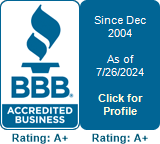(This article, in slightly different form, originally appeared in Wealth Management Real Estate.)
 PhilippBirmes/Pexels
PhilippBirmes/Pexels
The 700,000-square-foot AT&T City Center, here in the urban core of Birmingham, AL, is being converted to a massive mixed-use complex of residential, office, and retail space rechristened The 600. Part of the impetus for the project, a joint venture of Varden Capital Properties of Atlanta and Tellus Partners, is simply that there’s no longer the need in the urban core for that much office space.
Ditto in-town residential. According to CoStar stats, Birmingham saw negative residential rent growth last year of 1.3 percent in our urban core, and a rise in vacancies from two percent to 14.5 percent. And therein lies new opportunity for developers of vision.
These opportunities also extend to property managers of vision, because, to the extent that Birmingham serves as a microcosm of national trends, “property lines” are blurring nationally, as trend-driven assets are adaptively reused for new purposes. We see it in both redevelopment, such as with The 600, and in modifications of usage. We’re seeing retail merge ever closer to industrial, hotels taking on more office use, and residential complexes converting parts of their common areas to work-from-home spaces for quarantined residents.
Seasoned property managers already know that the flexibility to switch from the specialized demands of one type of asset to another is key to building a dynamic career. For those just starting in the industry, a broad focus with an eye toward multiple disciplines will prepare them for the surprises of future trends.
As mentioned previously in this space, IREM has enjoyed a major spike in its online learning courses this past year, implying that members are driven to stay on top and ahead of market curves and the events of 2020.
Happily, the foundational expertise of the profession is sufficiently broad-based to cover a variety of specialties and is reflected in our CPM coursework. But at IREM--as well as with our fellow associations--there are a myriad of learning opportunities to prepare both younger candidates and those switching careers to maximize knowledge and broaden their perspectives, all with the aim of arming themselves with options.
Case in point: an IREM leadership team member cut his teeth in office management before he was hired to take on a retail asset. He went to the International Council of Shopping Centers (ICSC) for some needed specialized training. Ultimately, he launched his own business and now manages mixed-use, office, retail, and industrial.
For IREM, certification candidates can adapt learning to their interests and career level. Early career professionals can start by attaining the Accredited Residential Manager (ARM) or Accredited Commercial Manager (ACoM) certification, and, when the time is right and they’ve fulfilled certain experience requirements, they can pursue what I consider the premier real estate management certification, the CPM.
The ability to adapt to multiple asset types is a perfect example of a proactive stance in a shifting market. As retail blurs into industrial, as hotels redefine themselves for remote work, as residential accommodates more options for residents, the ability of a manager to speak the language of all occupants, no matter the environment, will become ever more vital. It’s a sign of the times.
And these times are unprecedented, the result of natural market forces as well as shifting needs driven (or accelerated) by the pandemic. Whatever path a property manager takes to broaden their knowledge base, the better prepared they’ll be to cross those property lines.
Chip Watts, CPM®, CCIM, is 2021 president of IREM (Institute of Real Estate Management). In addition, he serves as president and executive CPM for Watts Realty Co., Inc., AMO®, in Birmingham, Alabama.




